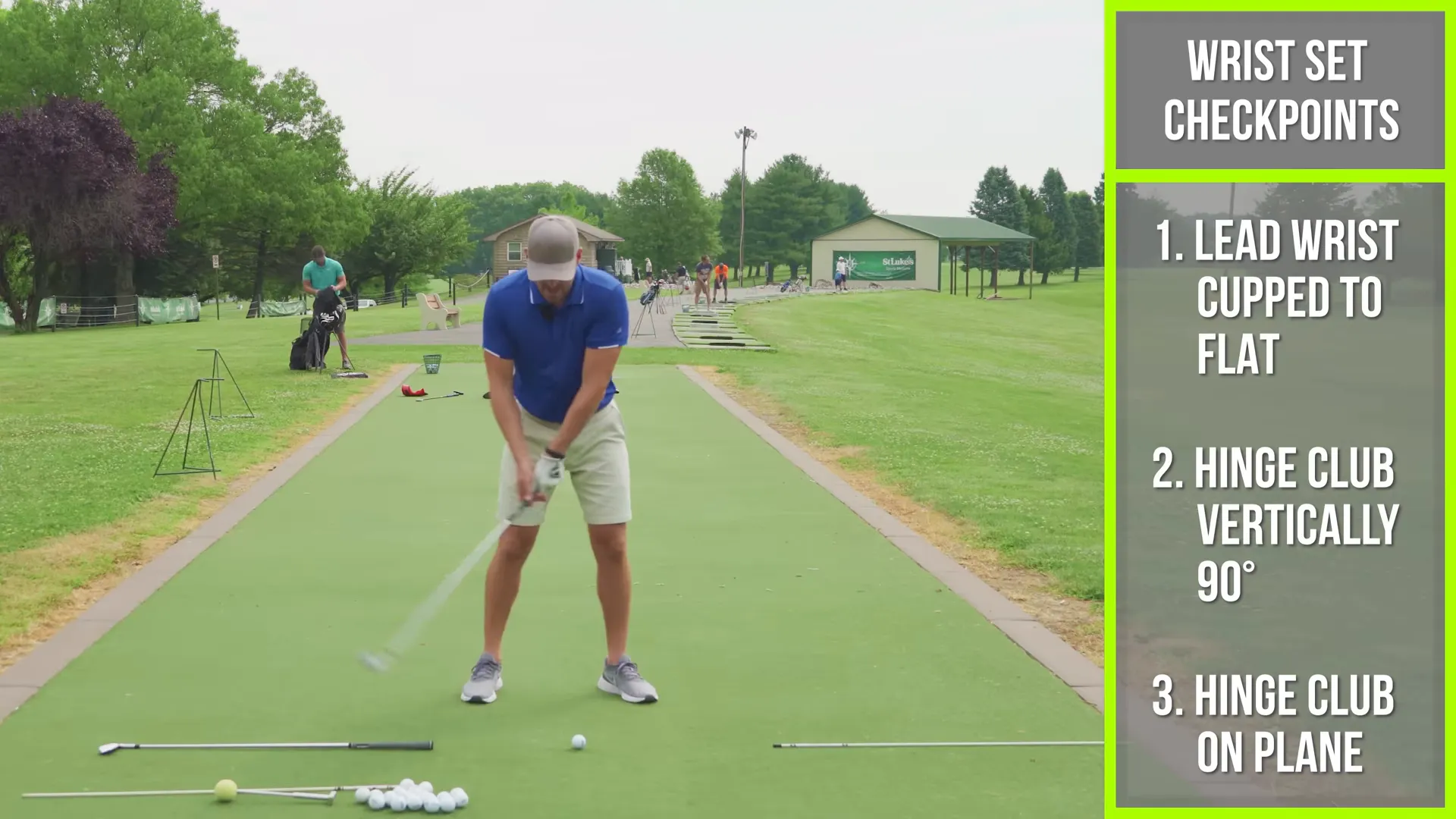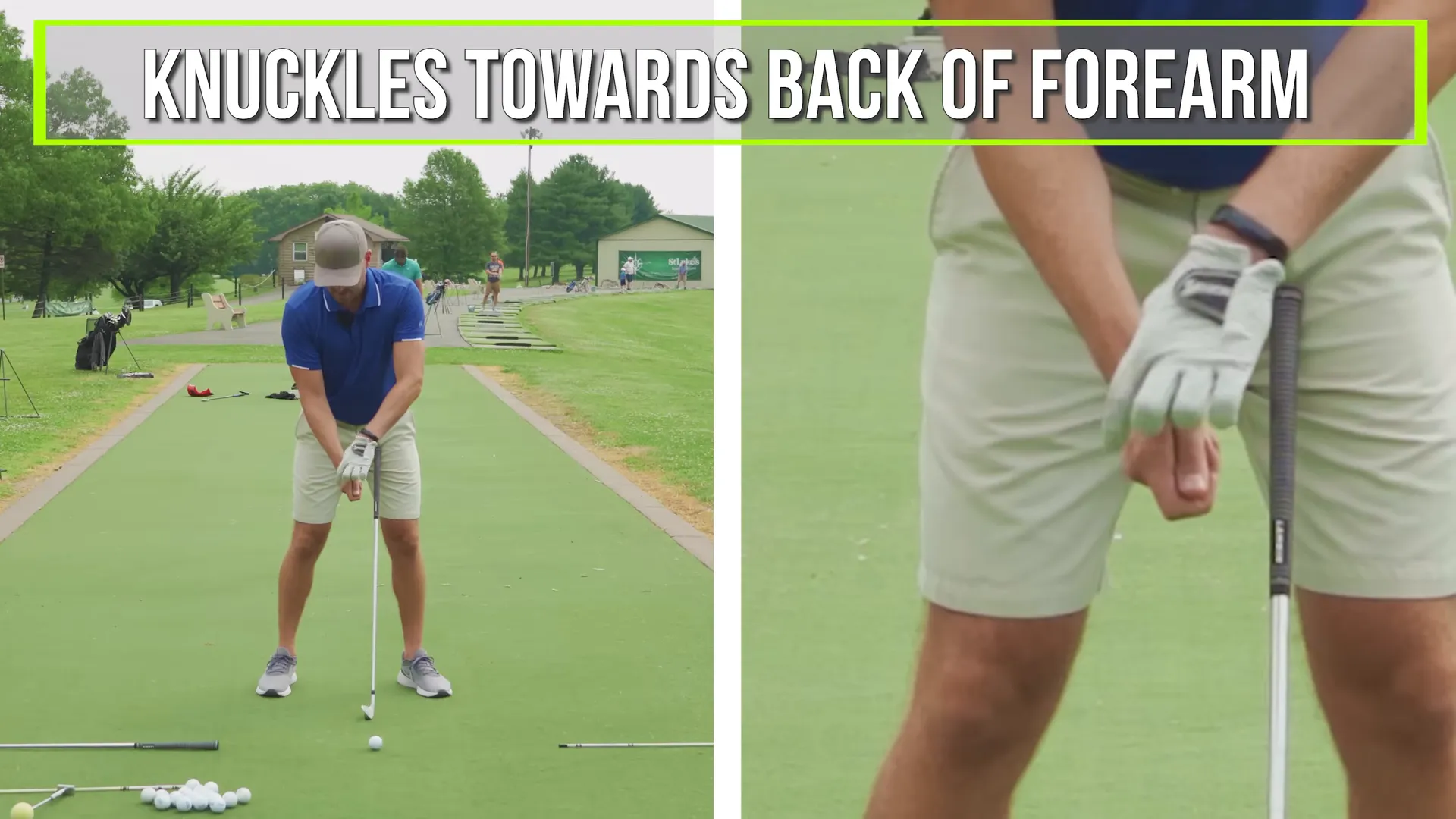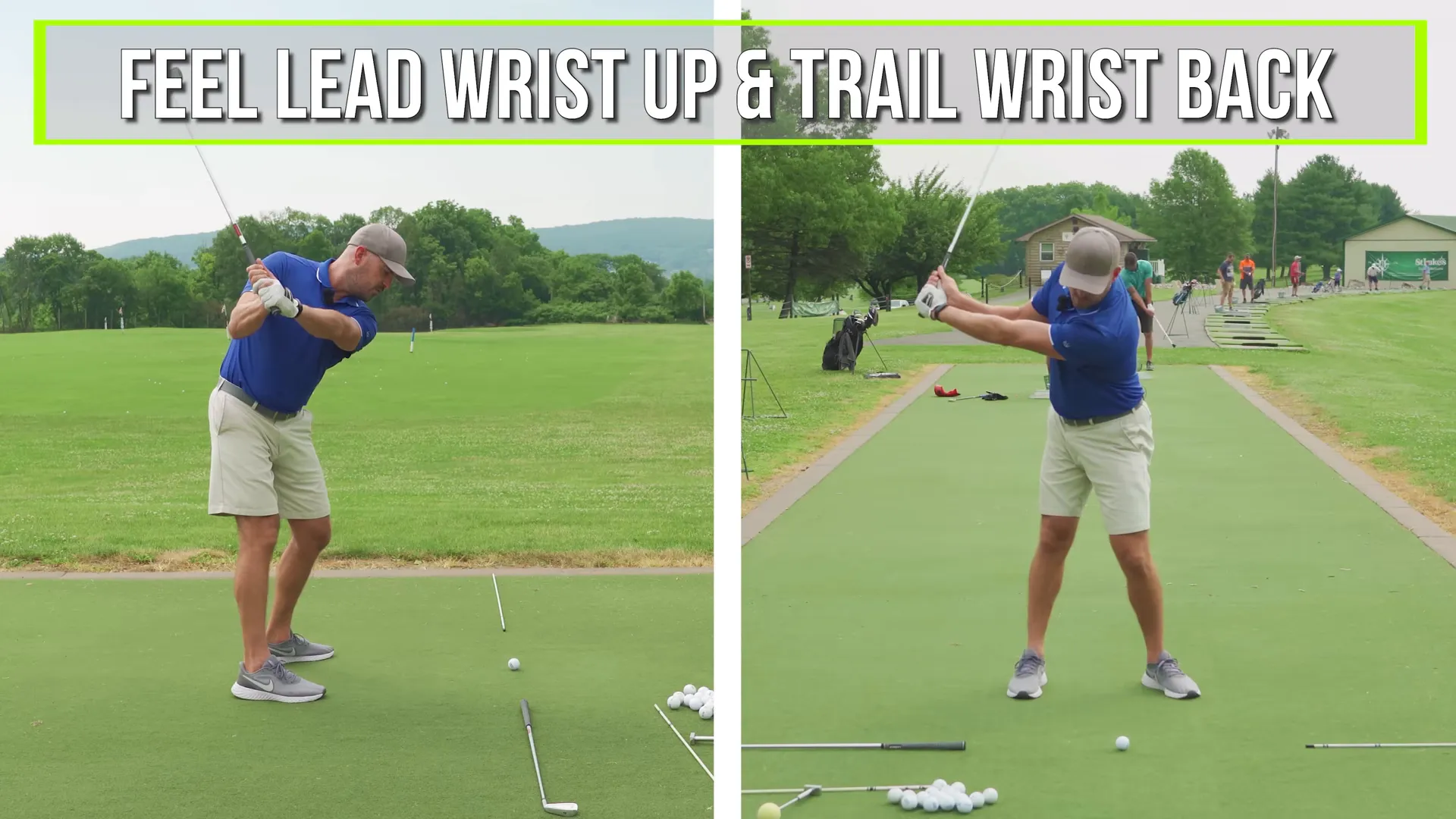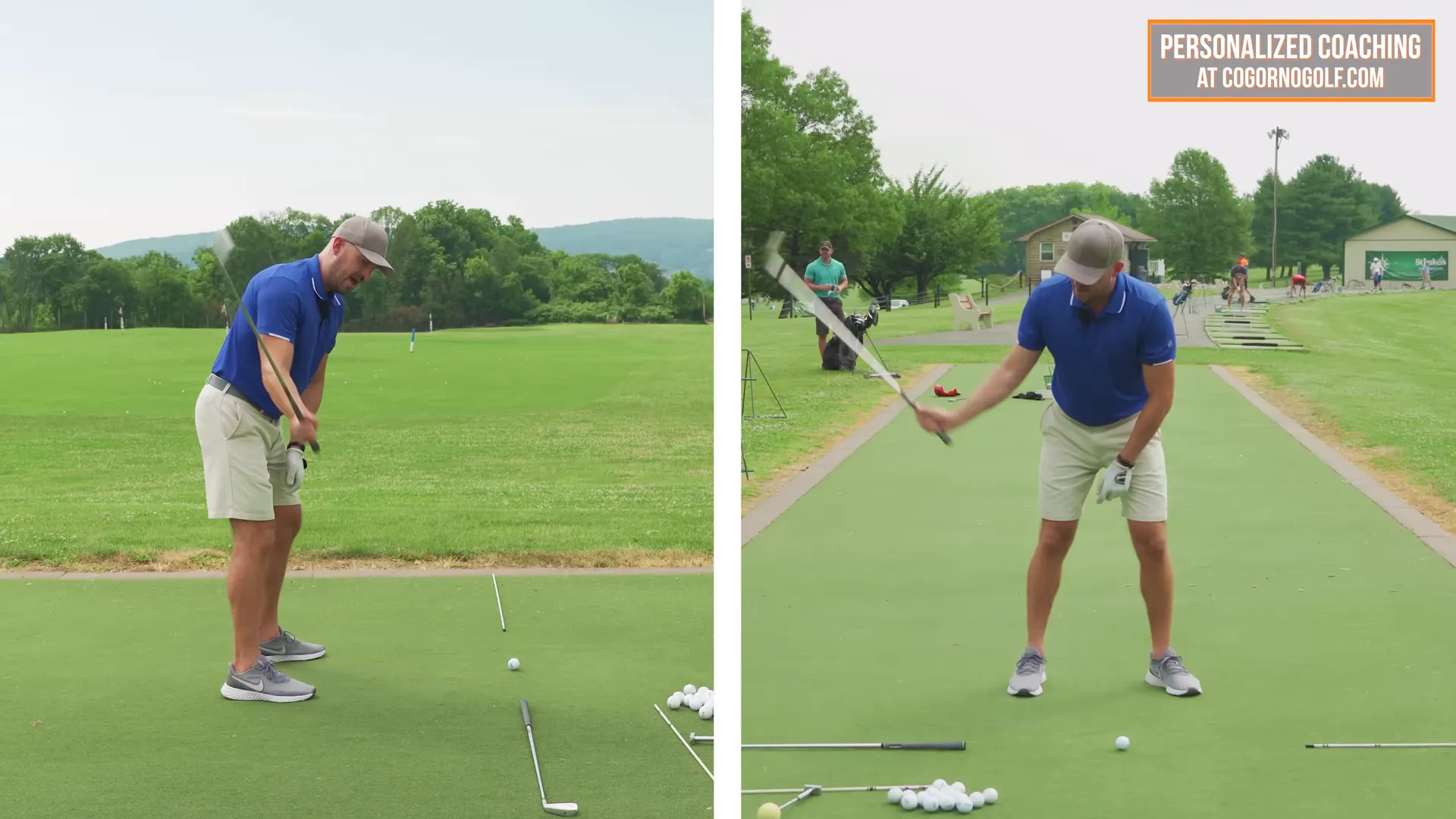 Welcome to the ultimate guide on perfecting your golf backswing with the correct wrist set. If you’re looking to enhance your ball striking, generate more power, and achieve consistent iron contact, read on. Learn from Eric Cogorno as he dives deep into the three essential wrist checkpoints you can implement on the range today.
Welcome to the ultimate guide on perfecting your golf backswing with the correct wrist set. If you’re looking to enhance your ball striking, generate more power, and achieve consistent iron contact, read on. Learn from Eric Cogorno as he dives deep into the three essential wrist checkpoints you can implement on the range today.
Table of Contents
- Step 1: Three Checkpoints for Wrist Set
- Step 2: Importance of Wrist Hinge
- Step 3: Practice Left-Hand Hinge
- Step 4: Trail-Hand Motion Technique
- Step 5: Combining Feels
- Step 6: Amounts, Timing, Tour Models
- Step 7: Grip Adjustments
- Step 8: Fixing Common Problems
- Step 9: Practice Plan
- Step 10: When to Seek Help
- Conclusion
Step 1: Three Checkpoints for Wrist Set
To refine your swing, you must first grasp what defines a correct wrist set. Focus on the following checkpoints for optimal results:
- Left wrist flat – Transform the lead wrist from slightly cupped at address to flat by the time the left arm reaches parallel.
- 90° Hinge – Achieve roughly a 90-degree angle between the shaft and the lead arm at this stage.
- On Plane – Ensure the club butt points at or just inside the ball-target line when hinged properly.
Hitting these checkpoints consistently leads to a simpler, more effective downswing and impact.
Step 2: Importance of Wrist Hinge
Wrist hinging is crucial for two main reasons:
- Power – A vertical hinge stores energy, ready to be unleashed during the downswing, enhancing shot distance.
- Solid Contact – To make contact with the ball before the ground, you need to hinge the wrist upward first.
Step 3: Practice Left-Hand Hinge
Begin with your left hand to master the vertical feel:
- Set up with both hands, then remove the trail hand.
- Hinge the shaft up to about 90° toward your face.
- Hinge down to strike the mat, focusing on the thud.

Step 4: Trail-Hand Motion Technique
Practicing with only the trail hand involves pulling the wrist straight back without vertical movement:
- Grip the club with just your trail hand.
- Pull your hand straight back so knuckles point toward your forearm.
- Ensure the hand path remains horizontal.
Step 5: Combining Feels
- Execute three consecutive left-hand-only reps focusing on the down hinge.
- Perform three right-hand-only reps accentuating the backward pull.
- Merge both moves with both hands, replicating the individual feels together.

Step 6: Amounts, Timing, Tour Models
The amount of hinging and when to do it varies, but here’s guidance:
- Ideal Degrees – Aim for setup wrist cup at 145° and hinge to approximately 90° at arm parallel.
- Tour Model Insight – Like Adam Scott, achieve a progressive hinge without sudden snaps.
Step 7: Grip Adjustments
Small alterations in grip can significantly affect your swing:
- Lead hand – Keep the club in fingers more than palm.
- Trail hand – Emphasize the pullback with middle and index fingers.
Step 8: Fixing Common Problems
- Open Clubface – Ensure your trail wrist pulls backward to flatten the lead wrist.
- Over-hinging – Practice bowing the lead wrist to reduce excessive vertical hinge.
- Thin Shots – Work on the left-hand drill to promote a proper downward angle.
Step 9: Practice Plan
- Begin with short wedges for warming up.
- Execute 9-feel swing progressions with a mid-iron, starting with left-only, then right-only, and finally both hands.
- Apply the same progression with different clubs.
- Finish with full shots, focusing heavily on wrist checkpoint checks.

Step 10: When to Seek Help
If improvements stall, consider coaching for feedback. External perspectives can quickly identify minor flaws that hinder progress.
Conclusion
Implementing the three critical checkpoints — flat left wrist, 90° hinge, correct plane alignment — can greatly enhance your golf swing consistency. Adopting the left-up, right-back approach ensures efficient power transfer and precise ball contact. Dive into these drills with patience and deliberate practice, and embrace the improvements in your game. Master the backwing, boost your game, and revel in the enhanced consistency and power of your golf outings.


0 Comments